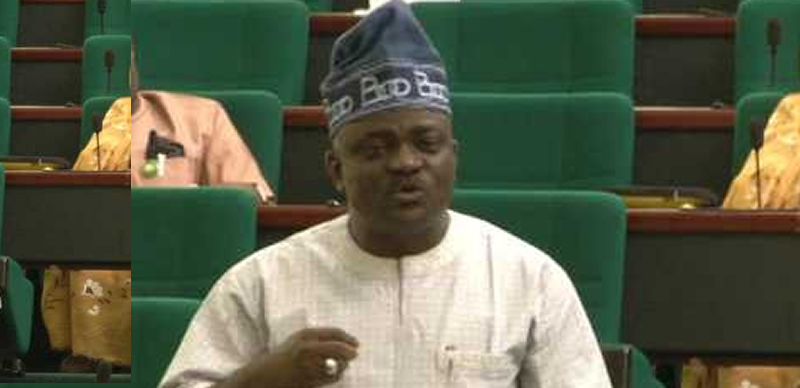The Rift Between Wole Oke and the Osun PDP: A Chronicle of Discontent and Defection
The political landscape of Osun State witnessed a significant shift with the defection of Wole Oke, the long-standing representative of the Obokun/Oriade Federal Constituency in the House of Representatives, from the Peoples Democratic Party (PDP) to the All Progressives Congress (APC). This move, formalized through resignation letters submitted on April 16, 2025, sparked a wave of reactions, accusations, and counter-accusations between Oke and the Osun PDP. The PDP, in a strongly worded statement, characterized Oke’s departure as an act of betrayal, highlighting his alleged abuse of the party’s goodwill and resources over two decades. They painted a picture of a politician accustomed to privilege, who consistently employed divisive tactics and prioritized self-interest over genuine party commitment. The party leadership claimed to have long anticipated Oke’s defection, portraying him as someone who shied away from internal competition, expecting candidacy to be handed to him on a platter.
Oke, in his defense, presented a contrasting narrative of his relationship with the PDP. In a video addressed to his constituents, he expressed his frustration, claiming to have been marginalized and undermined despite his years of service and financial contributions to the party. He described a sense of betrayal, feeling like an enemy of the government and the party despite his efforts to nurture and support them, even assisting the incumbent governor’s senatorial bid. He emphasized his motivation to empower his followers and constituents through political positions, suggesting that this was the driving force behind his endurance with the government. However, he lamented the lack of trust and respect he received in return, culminating in his feeling disregarded and undervalued. His plea for advice from his constituents underscored his disillusionment and the internal conflict he faced before his eventual defection.
The Osun PDP’s response to Oke’s claims was swift and dismissive. They reiterated their accusation of Oke being a "lazy politician" who sought freebies instead of engaging in political contests. They argued that his expectation of unchallenged candidacy was undemocratic and detrimental to the party’s principles. They highlighted his long tenure in the House of Representatives, spanning nearly 20 years, questioning what could possibly justify his defection after such extensive support from the party. The narrative woven by the PDP portrayed Oke as an entitled individual who failed to appreciate the opportunities afforded to him, ultimately prioritizing personal gain over the collective good.
Former PDP National Publicity Secretary, Diran Odeyemi, echoed the party’s sentiments, accusing Oke of greed, ungratefulness, and selfishness. He emphasized the magnanimity of the Obokun and Oriade constituencies, suggesting that it was time for them to choose a new representative. Odeyemi’s remarks highlighted the perceived overstayal of Oke in his position, emphasizing the need for change and the opportunity for new leadership to emerge. This exchange of accusations further deepened the rift between Oke and the PDP, showcasing the starkly contrasting perspectives on the events leading up to his defection.
The clash between Oke and the Osun PDP exemplifies the complexities of political relationships and the often-conflicting narratives that emerge in the aftermath of a high-profile defection. While the PDP portrayed Oke as a self-serving politician who betrayed the party’s trust, Oke presented himself as a dedicated servant who was ultimately marginalized and disregarded. This divergence in perspectives reveals the underlying tensions and power dynamics within the political arena, where loyalty, ambition, and the pursuit of power often intersect and collide. The fallout from Oke’s defection serves as a case study in the intricacies of political maneuvering and the challenges of maintaining unity and cohesion within a political party.
The events surrounding Oke’s defection leave several questions unanswered. Did Oke genuinely feel marginalized and betrayed, or was his defection a calculated move driven by personal ambition? Was the PDP’s response justified, or did they fail to address the underlying issues that led to Oke’s disillusionment? Ultimately, the truth may lie somewhere in between these contrasting narratives. Regardless of the underlying motivations, Oke’s defection has undoubtedly reshaped the political landscape of Osun State, prompting a period of reflection and realignment within the PDP and potentially impacting the balance of power in the upcoming elections. Only time will tell what the long-term consequences of this political rupture will be.


